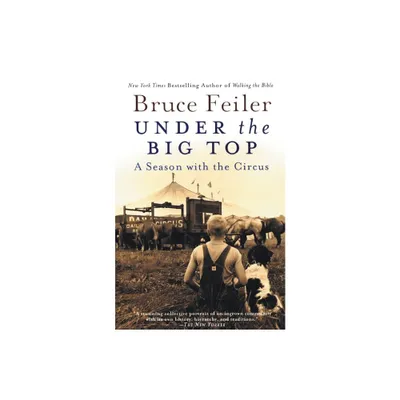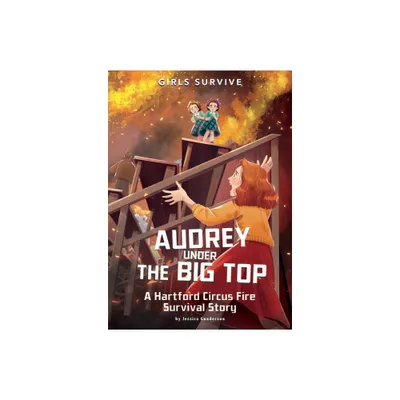Home
Under the Big Top: Big Tent Revivalism and American Culture, 1885-1925
Loading Inventory...
Barnes and Noble
Under the Big Top: Big Tent Revivalism and American Culture, 1885-1925
Current price: $130.00


Barnes and Noble
Under the Big Top: Big Tent Revivalism and American Culture, 1885-1925
Current price: $130.00
Loading Inventory...
Size: OS
*Product Information may vary - to confirm product availability, pricing, and additional information please contact Barnes and Noble
Under the Big Top
examines the immensely popular big tent revivals of turn-of-the-twentieth-century America and develops a new framework for understanding Protestantism in this transformative period of the nation's history. Contemporary critics of the revivalists often depicted them as anxious and outdated religious opponents of a modern, urban nation. Early historical accounts likewise portrayed tent revivalists as Victorian hold-outs, bent on re-establishing nineteenth-century values and religion in a new America. In this revisionist work, Josh McMullen argues that, contrary to these stereotypes, big tent revivalists actually participated in the shift away from Victorianism and helped in the construction of a new consumer culture in the United States.
How did the United States became the most consumer-driven and yet one of the most religious societies in the western world? McMullen shows that revivalists and their audiences reconciled the Protestant ethic of salvation with the emerging consumer ethos by cautiously unlinking Christianity from Victorianism and joining it to the new, emerging consumer culture.
helps to explain the continued appeal of both the therapeutic and the salvific worldview to many Americans as well as the ambivalence that accompanies this combination.
examines the immensely popular big tent revivals of turn-of-the-twentieth-century America and develops a new framework for understanding Protestantism in this transformative period of the nation's history. Contemporary critics of the revivalists often depicted them as anxious and outdated religious opponents of a modern, urban nation. Early historical accounts likewise portrayed tent revivalists as Victorian hold-outs, bent on re-establishing nineteenth-century values and religion in a new America. In this revisionist work, Josh McMullen argues that, contrary to these stereotypes, big tent revivalists actually participated in the shift away from Victorianism and helped in the construction of a new consumer culture in the United States.
How did the United States became the most consumer-driven and yet one of the most religious societies in the western world? McMullen shows that revivalists and their audiences reconciled the Protestant ethic of salvation with the emerging consumer ethos by cautiously unlinking Christianity from Victorianism and joining it to the new, emerging consumer culture.
helps to explain the continued appeal of both the therapeutic and the salvific worldview to many Americans as well as the ambivalence that accompanies this combination.


















